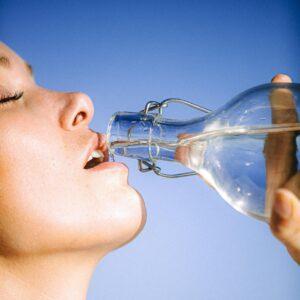The Importance of Hydration: How Much Water Do You Need?
Let’s talk about something we all know we should do but often overlook: staying hydrated. Water is so much more than just a thirst-quencher; it’s essential for our bodies to function at their best. So, how much water do you really need? Let’s break it down together.
Why Hydration Matters
- Supports Bodily Functions: Water is the unsung hero in our bodies. It helps transport nutrients, flush out toxins, and even cushions our joints. When you don’t drink enough, these processes can slow down, leaving you feeling sluggish.
- Regulates Body Temperature: Ever noticed how you sweat when it’s hot? That’s your body’s way of cooling down, and it relies on water to do that. Staying hydrated is crucial, especially during the summer months or when you’re breaking a sweat at the gym.
- Enhances Physical Performance: If you love being active, hydration is key. Even mild dehydration can sap your energy and hinder your performance. Nobody wants to feel tired halfway through a workout, right?
- Aids Digestion: Water plays a significant role in digestion. It helps break down food and keeps things moving smoothly through your system. If you’ve ever felt bloated or constipated, you know how important it is to drink enough.
- Boosts Mood and Brain Function: Did you know that being just a little dehydrated can affect your mood and focus? Staying hydrated can help you feel more energized and clear-headed, making it easier to tackle your day.
How Much Water Do You Need?
You’ve probably heard the “8×8” rule—drink eight 8-ounce glasses of water a day. While that’s a good starting point, everyone’s needs are different. Here’s what to consider:
1. Body Weight: A general guideline is to drink about half your body weight in ounces. So, if you weigh 150 pounds, aim for around 75 ounces of water daily.
2. Activity Level: If you’re hitting the gym or enjoying a long walk, you’ll need more water to replace what you lose through sweat.
3. Climate: Hot or humid weather can lead to increased sweating, which means you’ll need to drink more. Similarly, high altitudes can dehydrate you faster.
4. Health Conditions: Some medical conditions and medications can affect how much water you need. If you’re unsure, it’s always good to check with your doctor.
5. Diet: Don’t forget that fruits and veggies contribute to your hydration! Foods like cucumbers, watermelon, and oranges can give you a little boost.
Tips for Staying Hydrated
- Carry a Water Bottle: Keeping a reusable water bottle handy is a simple way to remind yourself to drink throughout the day. Plus, it’s eco-friendly!
- Set Reminders: Use your phone or a hydration app to nudge you to take a sip regularly. Trust me, it makes a difference.
- Flavor Your Water: If plain water isn’t cutting it, try infusing it with fruits, herbs, or even a splash of juice for some extra flavor.
- Check Your Urine: Okay, this might sound a bit weird, but checking the color of your urine can be a quick hydration gauge. Light yellow means you’re doing well!
- Listen to Your Body: Pay attention to your thirst cues. If you feel thirsty, your body is already signaling that it needs more water.
Conclusion
Hydration is a vital part of a healthy lifestyle, and it’s easier than you might think to stay on top of it. By knowing your needs and incorporating a few simple habits into your day, you can keep your body happy and thriving. So grab that water bottle and toast to your health—cheers! 🥤

